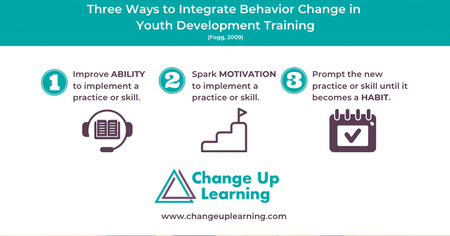Jen Siaca Curry, founder of Change Impact, recognized the unique opportunities—and the potential pitfalls—afterschool professionals have to promote equity and inclusion in their programs.
"About three years ago, I found myself uncomfortable with the public conversation about race, poverty, immigration, ability, accessibility and other issues related to equity," said Curry.
"I decided I had to explore these issues from the perspective of the youth development field, because that's where I felt I could have an impact."
Curry, who grew up in Queens, New York, comes from a diverse background, with her father being Puerto Rican and her Jewish mother being of Eastern European descent.
As she was growing up, Curry didn't think much about her family composition because her neighborhood was so diverse. As she grew older, she realized valuing diversity wasn't as pervasive around the country as it was in her home.
Assuming diversity is the principal of difference and equality is the principal of sameness, Curry said, equity requires us to actively fix the disparities faced by some groups and not others.
"In a truly equitable situation, everyone gets what they need to thrive while the community works to change structures, policies and practices that created the inequities in the first place."
In Equity and Inclusion: An Action Agenda for Youth Development Professionals, Curry proposes significant, yet simple changes out-of-school time (OST) professionals could take to support youth while embracing their diverse assets—grant funding not required.
Educate yourself, first. OST professionals should start with themselves, reading about the history of systemic oppression, following diverse voices on social media, watching documentaries, and otherwise learning more about equity and inclusion. A deeper understanding of inequity and issues that we may not personally face—for example racism, sexism, homophobia, ableism—lays the foundation for taking action.
Check your language. OST professionals should create standards for use of inclusive language, among staff and youth alike. Statements such as, "I don't see color" or "I treat everyone the same" may feel innocuous, but research and experience suggest that not recognizing individuals' identities strips them of their experience and their sense of self. The Social Justice Phrase Guide from The Opportunity Agenda serves as a good starting point for shifting language.
Understanding and overcoming implicit bias. Most of us genuinely hold no ill will toward others and find the idea that we could demonstrate inherent preference toward people who look like ourselves difficult to swallow. OST professionals could minimize implicit biases by recognizing that they exist and consciously acting differently. This is an area in which staff training could be particularly effective.
Culturally responsive pedagogy in OST programs. Scholars agree: Children learn best when their identities, cultures and languages are reflected in the curriculum they're taught. Moving far beyond food and flags, culturally responsive OST programming allows room for youth to engage with texts, artifacts, projects, and activities that use their own cultures to teach them about themselves and the world.
Identity-based bullying and behavior management. Ignoring identity-based bullying or treating it the same as other infractions is a missed learning opportunity for everyone. Explain to youth what identity-based bullying is. Encourage youth—and staff—to speak up when identity-based bullying occurs. Making an empowered decision to address this behavior will make OST environments safer for all.
Equity-focused recruitment and professional development for OST staff. OST program leaders should seek to hire a diverse staff who is willing to engage in reflection, discussion and action toward eliminating discrimination. Additional practices could include a shift in screening processes, explicitly including these items in performance reviews, peer coaching and more.
"The idea that there are 'haves' and 'have nots' makes us uncomfortable, especially for people with privilege," said Curry.
"It's important to explicitly focus on equity to force difficult conversations and to unpack how we can help or hinder progress toward a more equitable program, organization, or community."
Written by Sarah Suydam, Staff Writer for AfterSchool Today.
This article originally appeared in the fall 2019 issue of AfterSchool Today.



